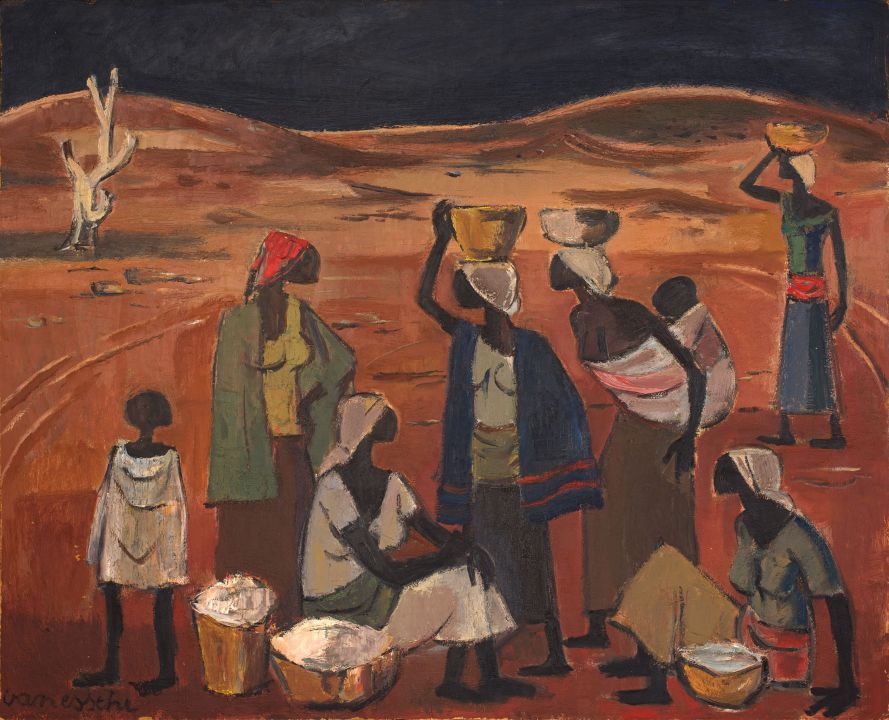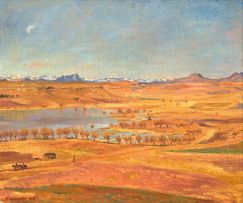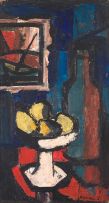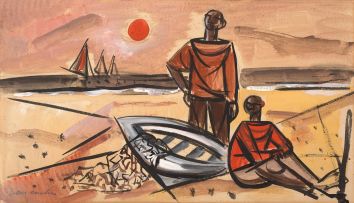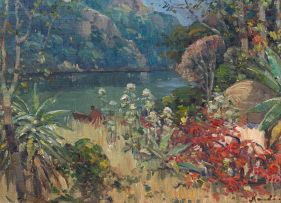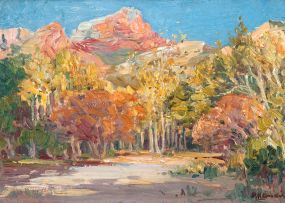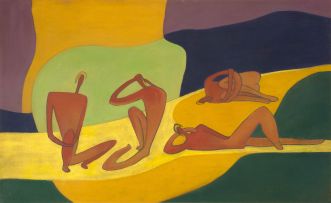Maurice van Essche
Women and Children in a Landscape
Incl. Buyer's Premium & VAT
About this Item
signed
Notes
Antwerp-born Maurice van Essche studied at the Brussels Academy of Fine Art under James Ensor, an influential proto-expressionist, and later in France under Henri Matisse. Van Essche travelled to the Belgian Congo on a government-sponsored trip in 1939. As hostilities ramped up in Europe he opted to settle in South Africa, arriving in Cape Town in 1940. He quickly became integrated into the local art scene. Van Essche's new home unavoidably foisted changes on the 34-year-old painter, who became a member of the New Group. His most consistent subject matter was the human figure, initially Congolese but later South African, which he expressed both in formal portraits and stylised landscape studies.
Esmé Berman notes that being neither realist nor expressionist his methods differed "quite considerably" from other South African painters: "The dual qualities of emotional humanism on the one hand and disciplined formalism on the other … lent aesthetic tension to his compositions."¹ While confronted with what Berman described as the "hazards of self-repetition," Van Essche's imaginative scenes of Congolese women bearing the loads of domestic duty were highly esteemed. "Perhaps no South African artists has succeeded so much in creating his own African imagery as Van Essche whose paintings of Africa, and of the Congo particularly, have established a style which finds many imitators but few emulators," wrote a young Neville Dubow when Van Essche exhibited in Cape Town in 1963. Dubow singled out Van Essche's power as a colourist, "and his ability to use this gift in combination with a consistent stylised technique to produce work of great vigour and assurance."²
1 Esmé Berman, Art and Artists of South Africa, Cape Town: A.A. Balkema, 1970, page 311.
2 Nevile Dubow, untitled statement in printed leaflet accompanying Maurice van Essche's exhibition at Lidchi Art Gallery, Cape Town, May 1963.
